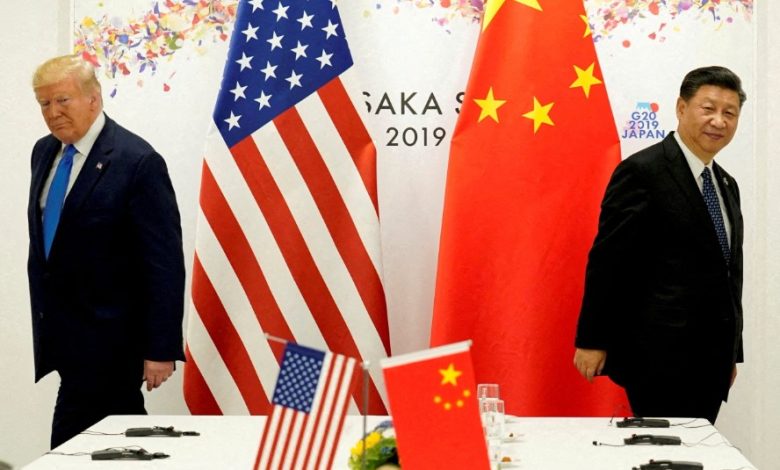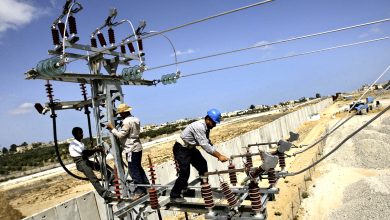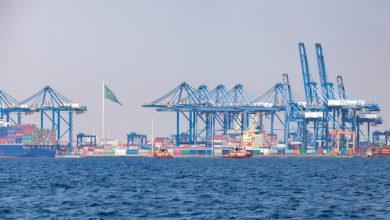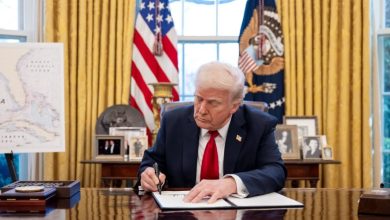
China has threatened to take countermeasures if the US proceeded with Trump’s decision to impose new tariffs on Chinese imports.
The US President, Donald Trump, announced on Friday an additional 100% tariffs on China, in addition to export controls on all critical software, ending months of trade truce between the two countries.
Beijing Response
China responded on Sunday to Trump’s new tariffs, threatening it would take corresponding measures if the US did not backtrack on its decision.
The Spokesperson for the Chinese Commerce Ministry accused the US of “double standard,” adding that the US actions “have severely harmed China’s interests and undermined the atmosphere of bilateral economic and trade talks, and China is resolutely opposed to them.”
In response to Trump’s threats, the Spokesperson said: “Willful threats of high tariffs are not the right way to get along with China. China’s position on the trade war is consistent: we do not want it, but we are not afraid of it.”
He urged Washington to promptly correct its course, or Beijing “will surely take resolute measures to protect its legitimate rights and interests,” he warned.
New US Tariffs
In a lengthy post on Truth Social, Trump said he would impose a new 100% tariff on Chinese imports to the US, on top of the 30% tariffs already in effect, and export controls on all critical software, starting on November 1, 2025.
He also suggested he would cancel a meeting with his Chinese counterpart, Xi Jinping, at the APEC Summit in South Korea later this month.
The US President cited China’s decision to expand export controls on rare earth elements as the reason behind the new tariffs, describing it as “an extraordinarily aggressive position on trade.”
In an earlier post, Trump accused Beijing of becoming “very hostile” and trying to “hold the world captive” by tightening controls on rare earths exports.
Rare Earth Elements
China on Thursday imposed export controls on rare earths to take effect on December 1, including adding five new elements and dozens of pieces of refining technology to its export-restricting control list.
Beijing also required foreign rare earth producers that use Chinese materials to get a license to export products that contain small traces of rare earth elements sourced from China.
China accounts for around 70% of the world’s rare earth minerals mining output, and controls about 90% of global rare earths processing. Rare earth minerals are essential for high-tech industries, including automobiles, defense and semiconductors.
This dominance has given China a lead in clean technologies, such as electric vehicles and wind turbines.
China Defends its Actions
China defended its new measures as “a legitimate action by the Chinese government to refine its export control system in accordance with laws and regulations.”
The Chinese Commerce Ministry’s Spokesperson emphasized on Sunday that “China’s export controls are not export bans.”
Moreover, he noted that the Chinese government “will work with all countries as always, to firmly safeguard world peace and stability in neighboring regions, and jointly maintain the stability of global industrial and supply chains.”
Trade Talks Uncertainty
The US and China announced in May 2025 that they agreed to slash tariffs by 110% for 90 days, heralding a temporary trade truce after rounds of negotiations to end their tariff war, which Trump sparked in April 2025.
However, Trump’s threat of new tariffs has ended the temporary truce between both countries, adding uncertainty into their ongoing trade talks.
In this context, analysts view Beijing’s restraint from immediately responding in kind to Trump as an attempt to leave the door open for trade negotiations, according to Reuters.
The managing director at strategic advisory firm GreenPoint, Alfredo Montufar-Helu, said: “By clarifying the rationale behind its retaliatory measures, Beijing is also outlining a potential path forward for negotiations. The ball is now in the US court.”
On the other hand, Hutong Research firm believes that if China chooses not to respond to Trump, it may indicate that Beijing no longer prioritizes a long-term deal with him.
“Key watchpoints now: Whether Beijing moves to freeze or complicate the TikTok sale, given its political symbolism. Proceeding with the sale under current conditions would be seen as a major concession,” the research company said.





